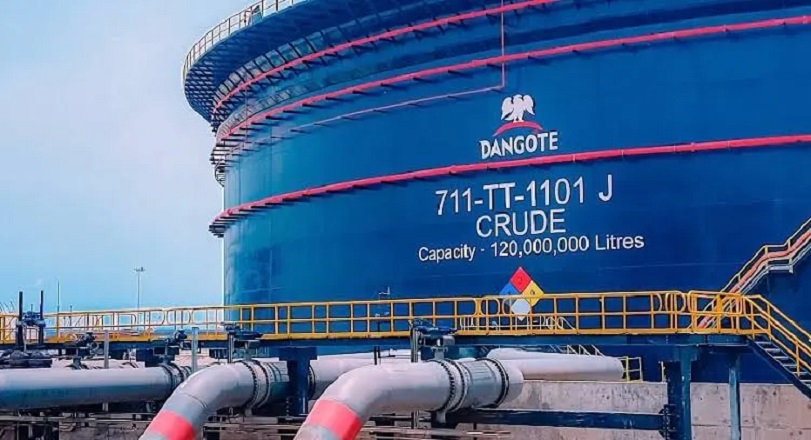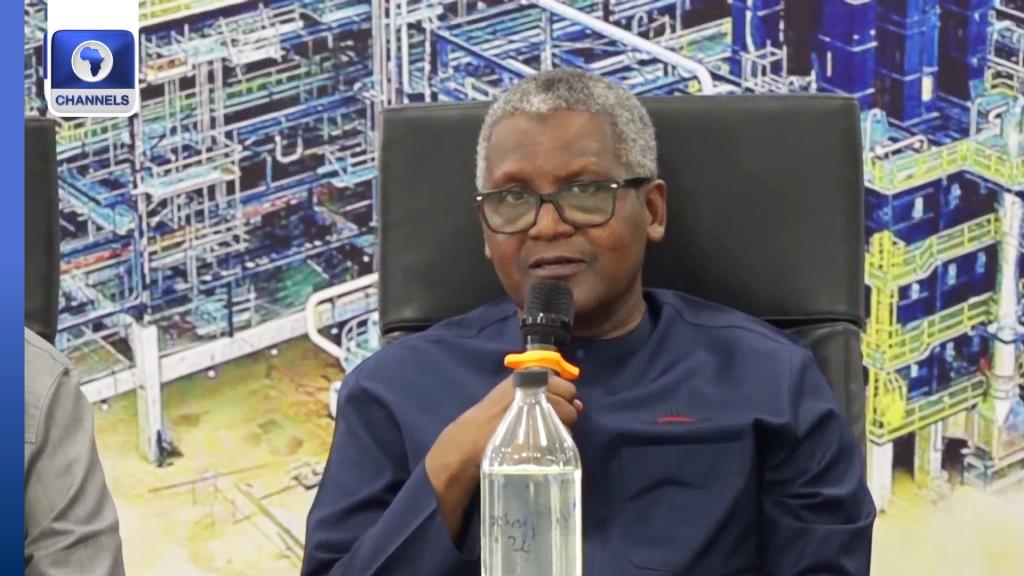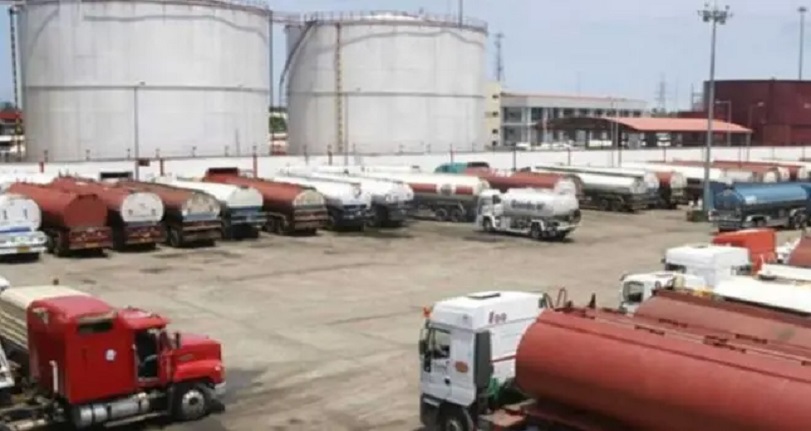Economy
Refinery: How Dangote Chose Nigeria Over Saudi Arabia, UAE
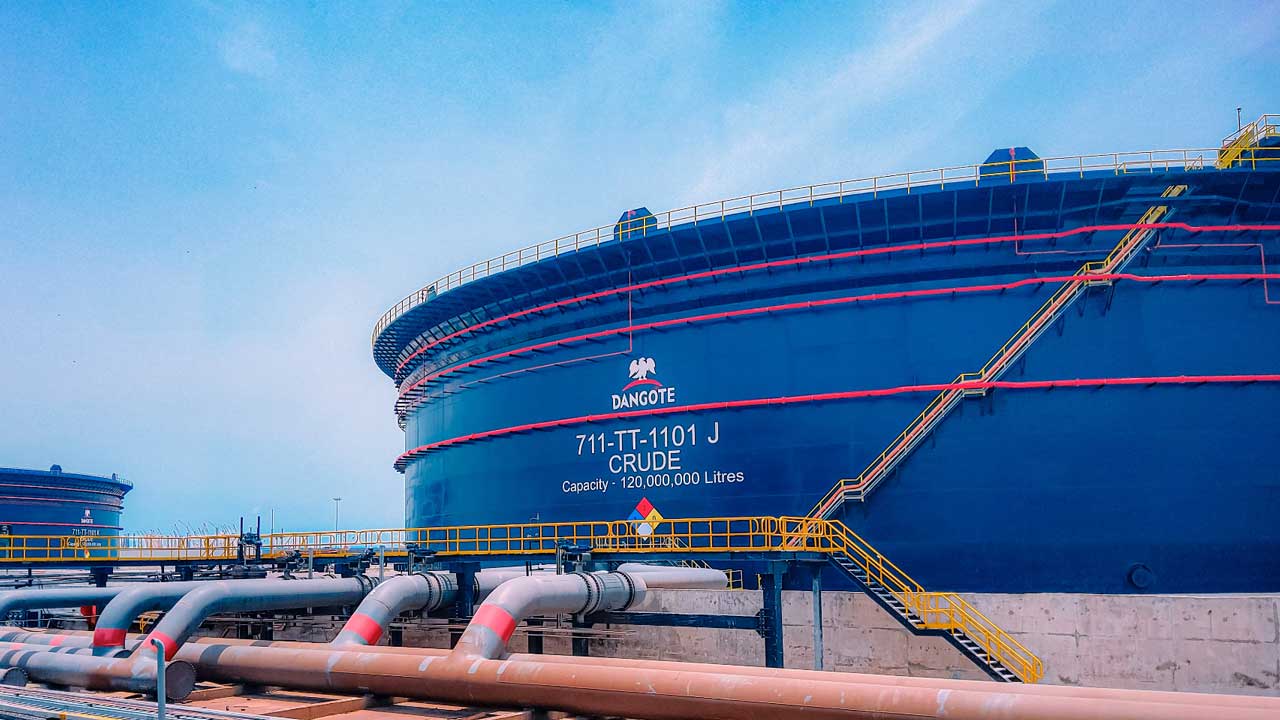
By Adedapo Adesanya
The Vice-President of Dangote Industries Limited, Mr Devakumar Edwin, has claimed that the $20 billion Dangote Refinery in the Lekki area of Lagos State, Nigeria, could have cited in Saudi Arabia or the United Arab Emirates (UAE) but the owner, Mr Aliko Dangote, decided to establish it in his home country.
He made this disclosure when a coalition of 28 Civil Society Organisations (CSOs) recently visited the facility, which can refine 650,000 barrels of crude per day.
The group was set up to monitor the compliance of the Nigeria National Petroleum Company (NNPC) Limited to the presidential directive to sell crude oil to Dangote Refinery in Naira.
Recall that last week, President Bola Tinubu directed the NNPC to sell crude oil to the refinery and others in local currency.
He described Dangote Refinery as a value-adding facility as it would stop the exportation of Nigeria’s crude and importation of finished products and wondered why the government would be against such a vision for Nigeria.
He said the disposition of the NNPC Limited and the regulatory agencies was a clear indication that they deliberately held down the nation’s refineries so that they could continue importing petroleum products.
According to him, many African countries have minerals but do not add value to their economies because those minerals are exported raw and the finished products are imported back into the country whereas vice versa should have been the order of the day.
“This is what Dangote refinery seeks to correct, we did the same in the cement and sugar sectors where Nigeria was a leading importer of those products and with the coming of Dangote leading the backward integration programme of the government, others came into the sector and together Nigeria now exports cement to other countries.
“What we want to do in Refinery, we have done it other businesses, Nigeria used to be the biggest importer of sugar, we came in and changed the narrative. We led the backward integration scheme of the federal government, and we now produce sugar locally for domestic consumption and others have joined us. We did the same in Cement by opening up a production plant and today Nigeria exports cement to other countries.
“In a business, no one was interested in investing in, Dangote delved into it determined to ensure Nigeria no longer imports fuel, invested massively and came up with the world’s largest single train refinery.
“He said he would not take his money to Dubai or Swiss banks as others are doing, he decided to invest at home and now they are saying he wants to create a monopoly.
“We didn’t ask for any favour other than that we want to buy crude to produce, first they said there was no crude, later they said we would have to pay some dollars above the prevailing crude market price. And this is a global market where you can track crude prices anytime.
“We resorted to buying crude from Brazil and the United States. Later they said we should not be announcing the price of the products.
“Even the US, the leading proponent of a free market economy protects its local industries by imposing huge duties on imports just to protect local industries. This is a man that Saudi Aramco once approached to come and cite his refinery in Saudi Arabia, promising a steady supply of cruse.
“Abu Dhabi also invited him to do the same on their soil but he rejected insisting he would build at home, now he did that and a facility that is supposed to add value to Nigeria’s economy is being frustrated,” he said.
Speaking on behalf of the CSOs, Mr Solomon Adodo of the Rise Up for A United Nigeria said what his group had seen was a world-class facility and wondered how a regulatory agency of the government could take sides with importers of petroleum products when a local refinery is now available to bail the nation out of the forex quagmire which has made the price petroleum products to skyrocket.
He disclosed that the CSOs have concluded to petition the Presidency on the need to adopt Dangote Refinery as a national asset that should be used to liberate the country from the shackles of importation of fuel while it exports crude.
“We are ready to defend this facility with everything as civil society organizations. We are not speaking on our behalf but on behalf of all Nigerians and on behalf of our fatherland. It leaves much to be desired how an agency of government with oversight function to guide to grow such a project as this would now be disparaging same project. This is too bad.
“We have seen for ourselves and we have cleared all doubt as to the completion of this refinery and the readiness to supply all our domestic needs. We will expose them all. Anyone who is not ready to ensure Nigerians have a new lease of life must give way. Now it is a fight to finish.
“Going forward, we are going to set up a situation room to monitor the compliance of the NNPCL with the directive of Mr President that Dangote Refinery would be supplied with Crude in Naira because we know that the enemies of the people would want to adopt another strategy to sabotage the presidential directive.
Mr Adodo said that the CSOs would mount serious advocacy to make the government accede to the demands of Nigerians which is not just granting the sale of crude to Dangote Refinery in Naira but also ensuring Dangote fuel is available at petrol stations for Nigerians to buy.
The group appealed to the management of Dangote Refinery not to be discouraged but to trudge on as the group would mount a serious campaign in favour of the refinery.
“Even if it means we should protest, we will. We can’t allow this international embarrassment to stand.”
He also argued that all the claims about monopoly against Dangote Refinery were wrong.
Economy
Dangote Refinery Finally Hits Full 650,000-Barrel Per Day Capacity
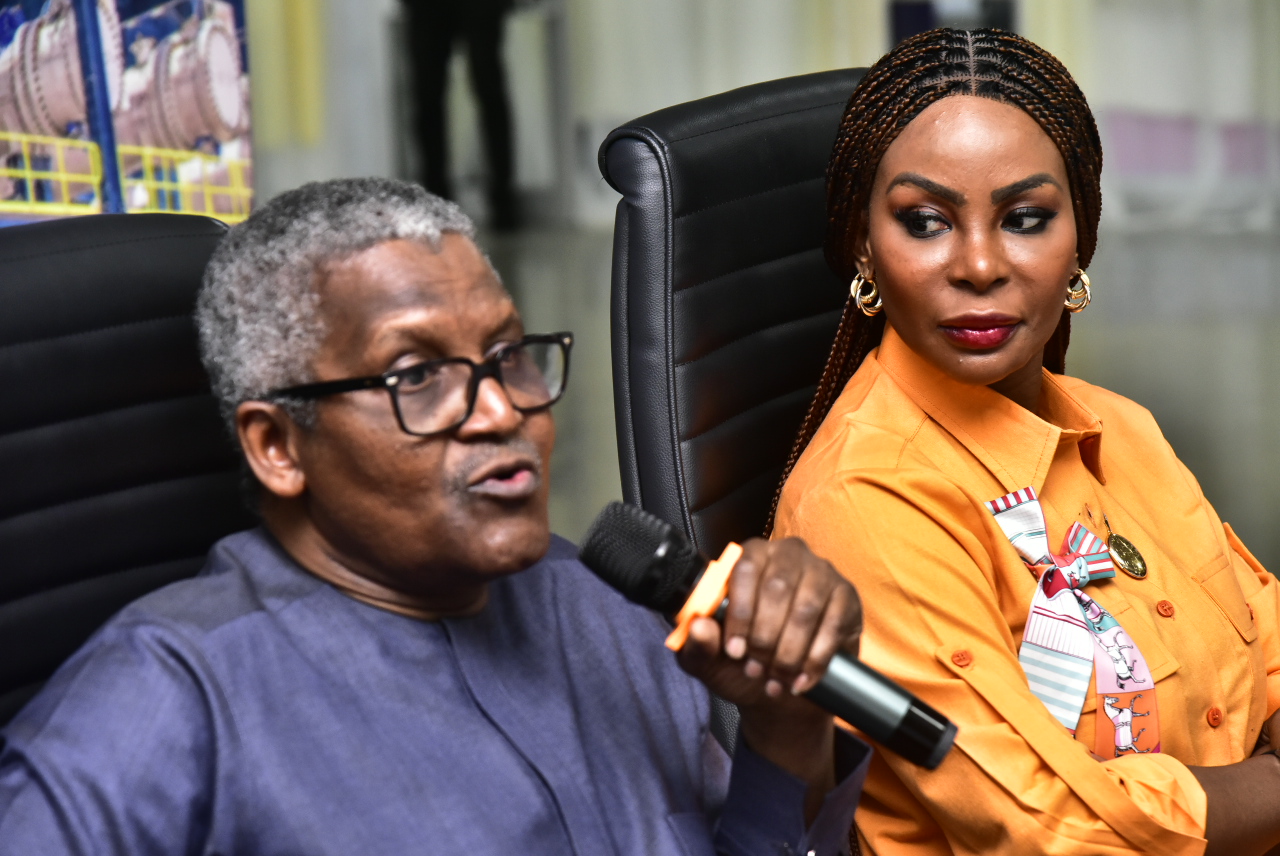
By Adedapo Adesanya
Dangote Refinery has reached its full capacity of 650,000 barrels per day following the successful optimisation of critical processing units, marking a turning point for Africa’s largest refinery, located in Lagos.
The $20 billion facility is now operating at full capacity, a world-record milestone for a single-train refinery.
This achievement comes after the completion of an intensive performance testing on the refinery’s Crude Distillation Unit and Motor Spirit production block.
According to the chief executive of Dangote Refinery, Mr David Bird, the refinery is now positioned to supply up to 75 million litres of petrol daily to the domestic market, a dramatic increase from the 45 million – 50 million litres delivered during the recent festive period.
The development can reshape Nigeria’s energy landscape and reduce the country’s longstanding dependence on imported refined products.
“Our teams have demonstrated exceptional precision and expertise in stabilising both the CDU and MS Block,” Mr Bird said. “This milestone underscores the strength, reliability, and engineering quality that define our operations.”
The refinery has completed a 72-hour series of performance test runs in collaboration with technology licensor UOP, a Honeywell company, to validate operational efficiency and confirm that all critical parameters meet international standards.
The tests covered the naphtha hydrotreater, isomerisation unit, and reformer unit, which together form the backbone of the facility’s gasoline production capability.
The milestone marks another achievement for the businessman and majority stake owner at the facility in his ambition to transform Nigeria from Africa’s largest crude oil producer into a refining powerhouse.
Since the commencement of the facility in 2016, it has faced numerous setbacks, including pandemic-related delays, foreign exchange challenges, and technical complications.
It was finally commissioned in May 2023 to help wean Nigeria off imported petroleum products, due to the chronic underperformance of its state-owned refineries.
Despite being Africa’s largest crude producer, the country has not been able to self-produce, even with four state-owned refineries with a combined capacity of 445,000 barrels per day. This has led to decades of high dependency on importation.
The Dangote refinery’s emergence at full capacity has the potential to eliminate this import dependence while positioning Nigeria as a net exporter to West African markets.
Yet, the refinery faces difficulty securing adequate crude oil supplies from Nigerian producers, forcing it to import feedstock from the US, Brazil, Angola, and other countries.
Mr Bird also confirmed that Phase 2 performance test runs for the remaining processing units are scheduled to commence next week, suggesting further capacity optimisation ahead.
The official emphasised the refinery’s commitment to “enhancing Nigeria’s energy security while supporting industrial development, job creation, and economic diversification.”
Economy
NASD OTC Exchange Rallies 0.74%

By Adedapo Adesanya
For the third consecutive session, the NASD Over-the-Counter (OTC) Securities Exchange closed in positive territory after it gained 0.74 per cent on Wednesday, February 11, amid a flat market breadth index.
The bourse recorded five appreciating securities as well as five depreciating securities during the midweek session.
On the gainers’ side of the market was Central Securities Clearing System (CSCS), which added N5.80 to sell at N70.53 per share versus Tuesday’s closing price of N64.73 per share.
Further, Air Liquide Plc appreciated by N2.02 to N22.34 per unit from N20.32 per unit, Afriland Properties Plc improved by 25 Kobo to N16.20 per share from N15.95 per share, First Trust Mortgage Bank Plc expanded by 6 Kobo to 75 Kobo per unit from 69 Kobo per unit, and Food Concepts Plc grew by 2 Kobo to N2.91 per share from N2.89 per share.
On the flip side, Okitipupa Plc lost N17.00 to sell at N220.00 per unit compared with the previous day’s N237.00 per unit, NASD Plc dropped N5.14 to trade at N46.26 per share versus N51.40 per share, Geo-Fluids Plc depreciated by 39 Kobo to close at N4.02 per unit versus N4.41 per unit, Acorn Petroleum Plc went down by 6 Kobo to N1.31 per share from N1.37 per share, and Industrial and General Insurance (IGI) Plc slipped by 5 Kobo to 54 Kobo per unit from 59 Kobo per unit.
At the close of trading activities, the market capitalisation increased by N17.05 billion to N2.308 trillion from N2.291 trillion, while the NASD Unlisted Security Index (NSI) advanced by 29.50 points to 3,858.81 points from 3,830.31 points.
Yesterday, the volume of securities jumped 15,181.4 per cent to 1.06 billion units from 6.9 million units, the value of securities surged 10.4 per cent to N465.7 million from N89.1 million, and the number of deals rose by 21.8 per cent to 56 deals from 46 deals.
The most active stock by value on a year-to-date basis was CSCS Plc with 18.2 million units worth N790.9 million, trailed by Resourcery Plc with 1.04 billion units valued at N408.6 million, and Geo-Fluids Plc with 29.2 million units sold for N150.8 million.
As for the most active stock by volume on a year-to-date basis, the position was taken over by Resourcery Plc with a turnover of 1.04 billion units valued at N408.6 million, while Geo-Fluids Plc moved to second place with 29.2 million units exchanged for N150.8 million, and the third place was occupied by Mass Telecom Innovation Plc with 20.1 million units worth N8.1 million.
Economy
Naira Trades N1,348/$1 as CBN Opens Official Market to BDC Operators

By Adedapo Adesanya
The Naira appreciated against the US Dollar in the Nigerian Autonomous Foreign Exchange Market (NAFEX) on Wednesday, February 11, by N2.07 or 0.15 per cent to N1,348.95/$1 from N1,351.02/$1 as the Central Bank of Nigeria (CBN) moved to further ease shortages and narrow the gap between the official and street rates.
The CBN approved the participation of licensed Bureaux De Change (BDC) operators in the Nigerian Foreign Exchange Market (NFEM) as part of efforts to improve forex liquidity in the retail segment of the market and meet the legitimate needs of end users.
The apex bank capped the weekly FX purchases at $150,000, adding that utilisation complies with existing BDC operational guidelines.
In the same official market, the Nigerian currency gained N6.46 against the Pound Sterling to quote at N1,840.11/£1 versus N1,846.57/£1, and added N6.36 on the Euro to close at N1,600.13/€1, in contrast to the preceding session’s N1,606.49/€1.
At the GTBank FX counter, the Nigerian Naira gained N5 on the greenback to settle at N1,358/$1 versus the previous day’s N1,363/$1, but remained unchanged at N1,430/$1 in the black market.
Meanwhile, the digital currency market was bearish yesterday as traders sold their positions after digesting a more hawkish macro outlook.
Analysts mainly attributed the latest crypto selloff to shifting expectations around US macro policy, following a “hawkish shift” in Federal Reserve expectations after Kevin Warsh’s nomination as chairman of the US central bank, which signals tighter liquidity and fewer rate cuts ahead.
Traders will be watching key US labour market data for signs on the future path of interest rates and broader risk appetite.
Solana (SOL) shed 3.2 per cent to sell at $79.86, Ethereum (ETH) depreciated by 2.7 per cent to $1,958.44, Bitcoin (BTC) dropped 1.5 per cent to $67,540.62, Cardano (ADA) slid 1.5 per cent to $0.2579, Ripple (XRP) dipped 1.4 per cent to $1.37, Binance Coin (BNB) slumped 1.2 per cent to $609.73, Litecoin (LTC) went down by 1.2 per cent to $52.58, and Dogecoin (DOGE) crashed by 1.1 per cent to $0.0917, while the US Dollar Tether (USDT) and the US Dollar Coin (USDC) closed flat at $1.00 each.
-

 Feature/OPED6 years ago
Feature/OPED6 years agoDavos was Different this year
-
Travel/Tourism10 years ago
Lagos Seals Western Lodge Hotel In Ikorodu
-

 Showbiz3 years ago
Showbiz3 years agoEstranged Lover Releases Videos of Empress Njamah Bathing
-

 Banking8 years ago
Banking8 years agoSort Codes of GTBank Branches in Nigeria
-

 Economy3 years ago
Economy3 years agoSubsidy Removal: CNG at N130 Per Litre Cheaper Than Petrol—IPMAN
-

 Banking3 years ago
Banking3 years agoSort Codes of UBA Branches in Nigeria
-

 Banking3 years ago
Banking3 years agoFirst Bank Announces Planned Downtime
-

 Sports3 years ago
Sports3 years agoHighest Paid Nigerian Footballer – How Much Do Nigerian Footballers Earn






